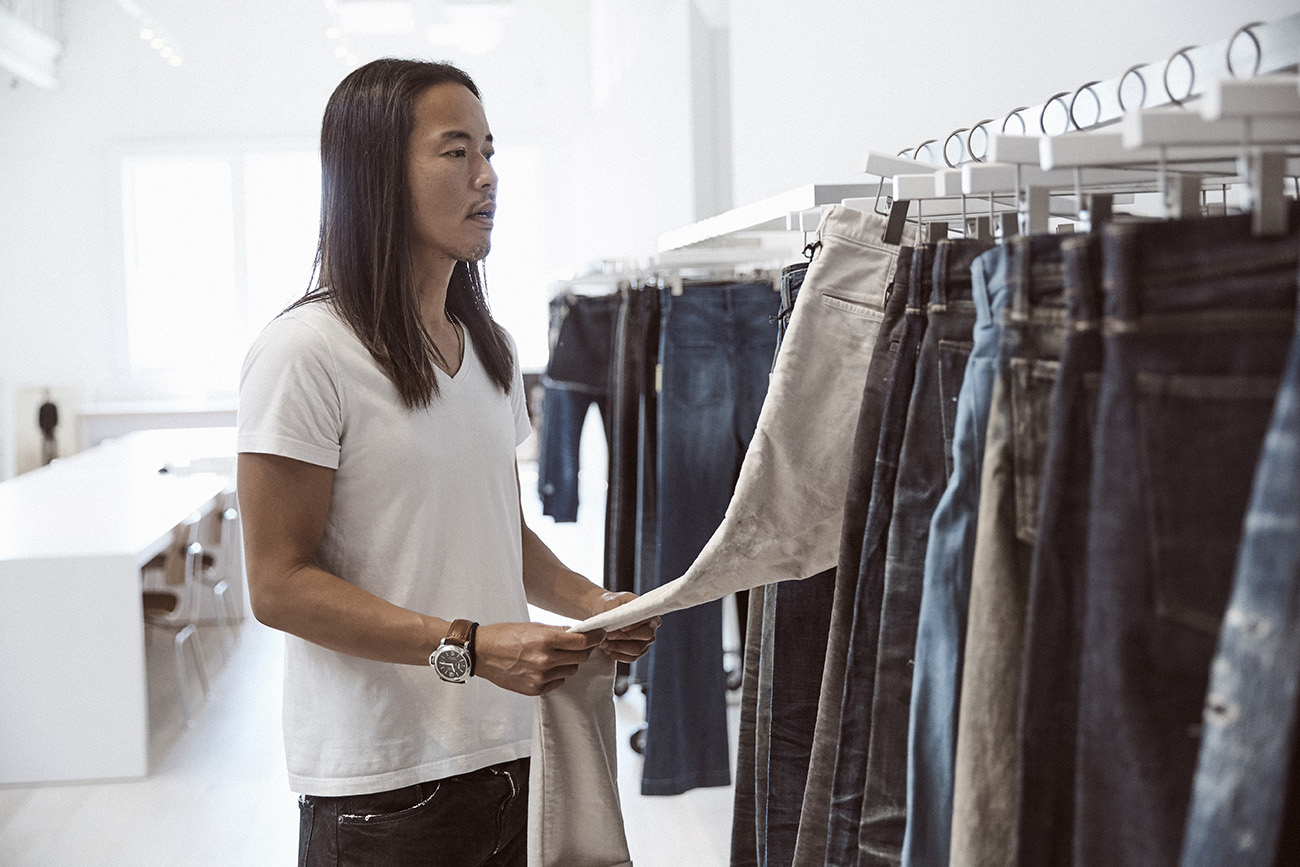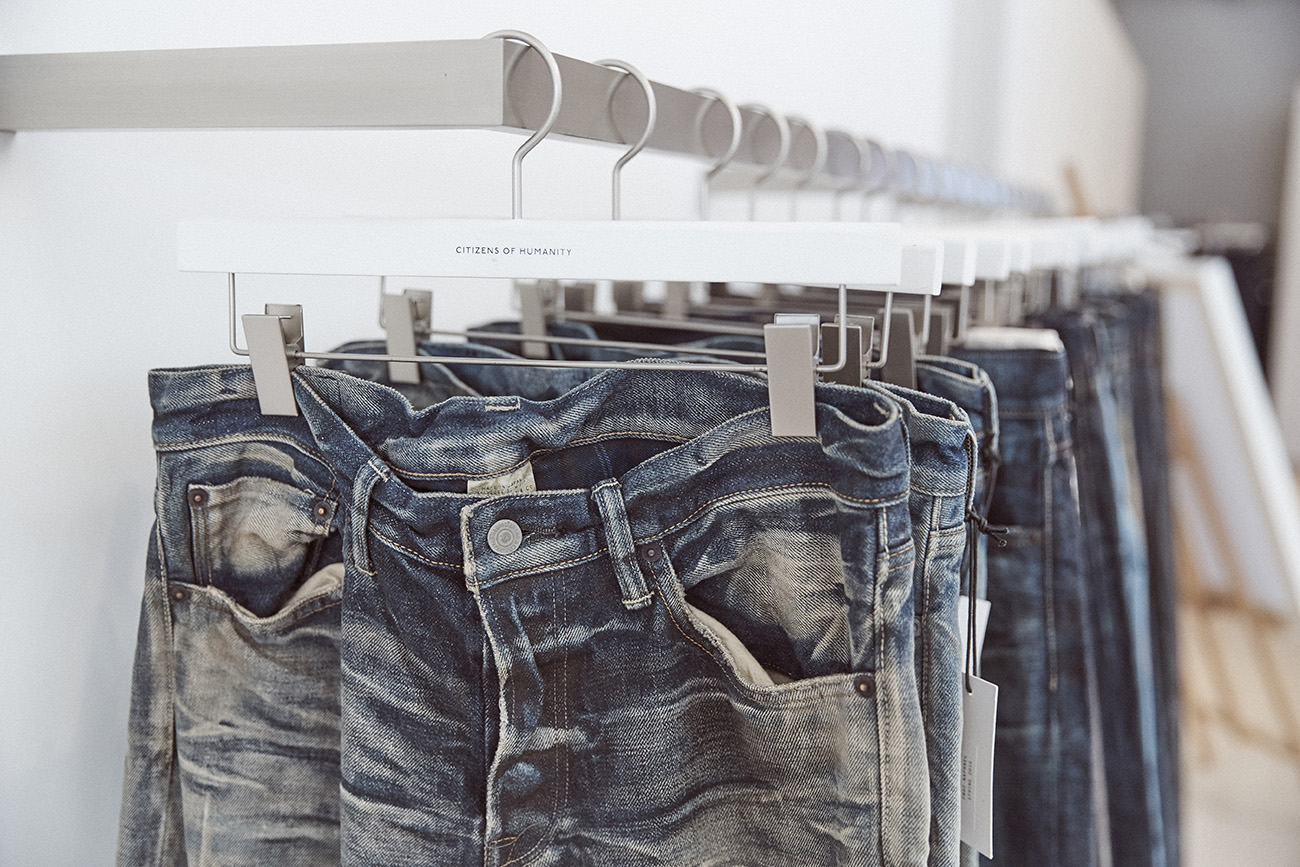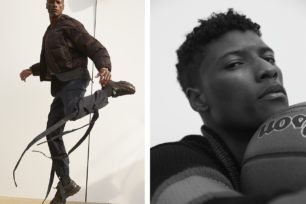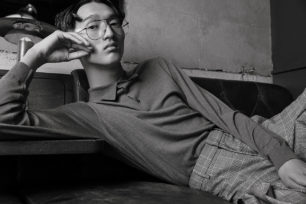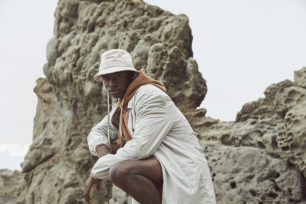The History and Success of Japanese Denim
Any denim enthusiast will tell you the best quality denim comes from Japan and within good reason: Japanese denim is known for its superior manufacturing techniques and the skilled, artisanal craft behind it.
Fabric Brand & Co. was founded 3 years ago and has quickly become a go-to brand for modern men looking for slim fit jeans with an edge. The brand uses only Japanese denim for its men’s jeans that are cut, sewn, washed and finished in Japan – each pair with a distinctive composition that only becomes more unique over time.
Here, we speak with the Director of Fabric and Textiles, Hiro Ikuta from the sought-after label to gain a better understanding of the significant history and traditions of Japanese denim.
Photo Trevor King
Can you tell us a little about the history and background of Fabric Brand & Co.?
Fabric-Brand & Co. launched in January 2013 and became part of the family of brands at Citizens of Humanity in 2015. The opportunity to work with artisans that have spun, woven, constructed and washed indigo products for decades was one of the reasons that greatly intrigued me to work with the Fabric Brand team. Fabric Brand uses only the most authentic, handcrafted products from Japan’s top mills within a small artisanal factory and laundry in the Kojima district in Japan. Without a doubt, Japan is historically one of the deepest indigo-oriented product manufacturing countries in this world.
Growing up there, I developed a strong appreciation for the Japanese manufacturing methods, so naturally found myself tapping into these artisanal methods. Each season, the collection combines Japan’s superior manufacturing techniques with modern silhouettes and finishes to create a quality product that is durable and distinctly relevant today. Being owned by a Los Angeles-based denim brand and manufacturer, Citizens of Humanity, allows us to produce and manufacture everything in-house. With Los Angeles as one of the most innovative places for denim in the world, I am so fortunate to be able to fuse these two important denim production locations in the creation and production of the brand each season.
What does your role entail as Director of Fabric and Textiles?
A significant part of my role is allocating the right fabrics for our products. There is a great deal of research involved in finding the best source of incredibly high-quality fabrics/textiles. I also often travel to Japan to work hand in hand with the laundry and factory facilities to ensure the product looks and feels authentic, natural, and most importantly, maintains elements of Japanese heritage. I feel it is important to maintain this relationship with the brand’s roots to ensure the brand preserves its Japanese authenticity and keep the product consistently moving in the right direction.
Photo Trevor King
Your knowledge of Japanese denim has seen you lend your talents to big brands, such as; Diesel and Replay. Why are other brands taking cues from the Japanese?
I worked in domestic textile sales for quite some time and learned a great deal about the intricacies of Japanese denim. Although I hold a vast wealth of knowledge in high-quality fabrics, I believe it was the incredible products I was selling that led me to the opportunities with some of the top denim brands. The passion that the manufacturers had for fabrics and textiles was contagious and made me fall in love with the market. Indigo was always a big part of Japanese culture but really took off when denim was introduced to the market. This triggered manufacturers to dig more into the creation of these beautiful products and how to develop the fabrics using the best blend of cotton and yarn, how to spin it, how to dye it, and so on. Regardless of this influential trend outside of Japan, most manufacturers in Japan kept pursuing to eventually create their own unique Japanese denim culture. I think this has authenticity and heritage has been a big part in garnering the attention from other countries.
What are some of the key elements you look for when sourcing fabrics for the brand? Any particular influences?
The designers I work with are continuously inspiring. They have such a clear concept as to the direction they see the collection going which is always helpful when sourcing quality fabrics to go with the beautiful designs. Other very important influences are the key mill’s developers and sales team, who allow us to view and test our products. We are so happy to establish deeper relationships with these dedicated players in the industry.
Each piece from Fabric Brand & Co. is produced in a traditional Japanese fashion through every step of the process. Tell us a little about this result in comparison to when other processes are used?
At Fabric Brand, we utilize Japan’s superior fabric manufacturing techniques (slow spinning, slow dying techniques and weaving by old type Japanese shuttle looms) that gives the products a handcrafted and authentic aesthetic that you can’t find anywhere else. We use selvedge fabrics that are woven at a slower speed which puts less stress on the fabric and gives the product more structure after washing. We also use a hand-done laundry process that gives the high-quality finish that Fabric Brand is known for. We are very thoughtful in every part of the creation process to make the jeans the most quality, durable product imaginable. With every single piece made by the magic hands of skilled artisans in Japan, we always make sure to take the time to achieve the best.
Finally…Who else globally are doing well in the denim game in your eyes?
Levi’s denim is timeless – we can’t miss it! I respect companies who create and produce the denim with full of love. It’s difficult to say who is doing well, but I am personally feeling a love and passion from Rag & Bone, APC, VISVIM, as well as Uniqlo.

